MercoPress. South Atlantic News Agency
Tag: Enviroment
-
Thursday, April 26th 2018 - 08:41 UTC
Major companies launch “UK Plastics Pact” to eliminate plastic packaging by 2025
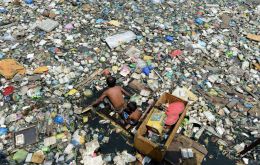
Dozens of companies have signed up to efforts to eliminate unnecessary single-use plastic packaging by 2025, it has been announced. Under the “UK Plastics Pact”, the businesses have also agreed targets to make 100% of their plastic packaging reusable, recyclable or compostable and to ensure 70% is effectively recycled or composted.
-
Thursday, April 26th 2018 - 08:26 UTC
“World Penguin Day”: funny on land and graceful and rapid in the sea
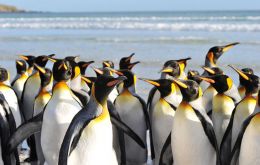
April 25th is “World Penguin Day”, undoubtedly the world’s most popular bird – think of Happy Feet, March of the Penguins, Pingu just to name a few uses in popular culture. These charismatic flightless birds are funny to watch on land but are graceful and rapid in water. They occur only in the seas of the Southern hemisphere; there are seventeen species of penguin ranging from the Galapagos to Antarctica.
-
Wednesday, April 25th 2018 - 09:06 UTC
Tons of frozen micro-plastics found trapped in the floating ice of the Arctic

Record levels of micro-plastics have been found trapped inside sea ice floating in the Arctic. Ice cores gathered across the Arctic Ocean reveal micro-plastics at concentrations two to three times higher than previously recorded. As sea ice melts with climate change, the plastic will be released back into the water, with unknown effects on wildlife, say German scientists.
-
Monday, April 16th 2018 - 08:40 UTC
UK earmarks £61.4 million to fight the rising tide of plastic pollution in oceans
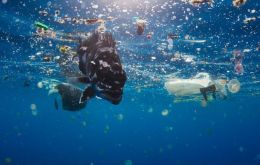
The UK Government has earmarked a £61.4 million war chest to fight the rising tide of plastic pollution in the world’s oceans. Theresa May announced the fund ahead of the Commonwealth Heads of Government meeting in London this week.
-
Saturday, April 7th 2018 - 10:31 UTC
Milestone Colombian ruling orders the government urgent protection of Amazon rainforest

Colombia’s highest court has told the government it must take urgent action to protect its Amazon rainforest and stem rising deforestation, in what campaigners said was an historic moment that should help conserve forests and counter climate change.
-
Thursday, March 22nd 2018 - 22:33 UTC
“Water for sustainable development”: UN Secretary-General's message at launch of international decade for action
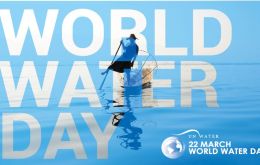
I am pleased to be with you on World Water Day to launch the International Decade for Action on Water for Sustainable Development.
-
Thursday, March 15th 2018 - 08:48 UTC
Micro-plastics presence in bottled water controversy; companies argue they operate at highest standards
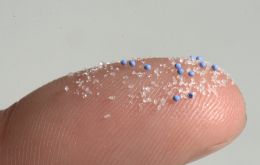
Test on major brands of bottled water have found that nearly all of them contained tiny particles of plastic. In the largest investigation of its kind, 250 bottles bought in nine different countries were examined. Research led by journalism organization Orb Media discovered an average of 10 plastic particles per liter, each larger than the width of a human hair.
-
Tuesday, February 13th 2018 - 09:35 UTC
SCAR celebrates sixty year of international collaboration in Antarctica

The Scientific Committee on Antarctic Research (SCAR), has celebrated six decades of successful international collaboration. Since its first meeting in The Hague on February 1958, SCAR has grown an international network of thousands of scientists who share a common ambition to carry out Antarctic science for the benefit of society.
-
Monday, February 12th 2018 - 13:18 UTC
Climate change is increasingly notorious and alarming

The global climate perspective is darkened by a climate change that has accelerated in recent years and is becoming increasingly difficult to reverse. The ambitious temperature limits established in the Paris agreement are about to be overcome. Among its consequences, it is revealed that at least 26 million people will be dragged into poverty annually due to climatic causes and the retreat of the ice in the poles and mountain glaciers accelerates exponentially.
-
Wednesday, January 31st 2018 - 09:29 UTC
NASA satellite keeps track of wildfires in Argentina
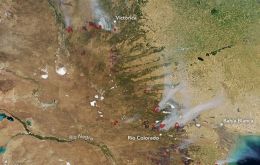
Roughly 12,000 wildfires burn each year in Argentina, charring more than 1.3 million hectares (5,000 square miles) of forest and grasslands. The Moderate Resolution Imaging Spectroradiometer (MODIS) on NASA’s Aqua satellite captured an image of one of them on January 29, 2018.
